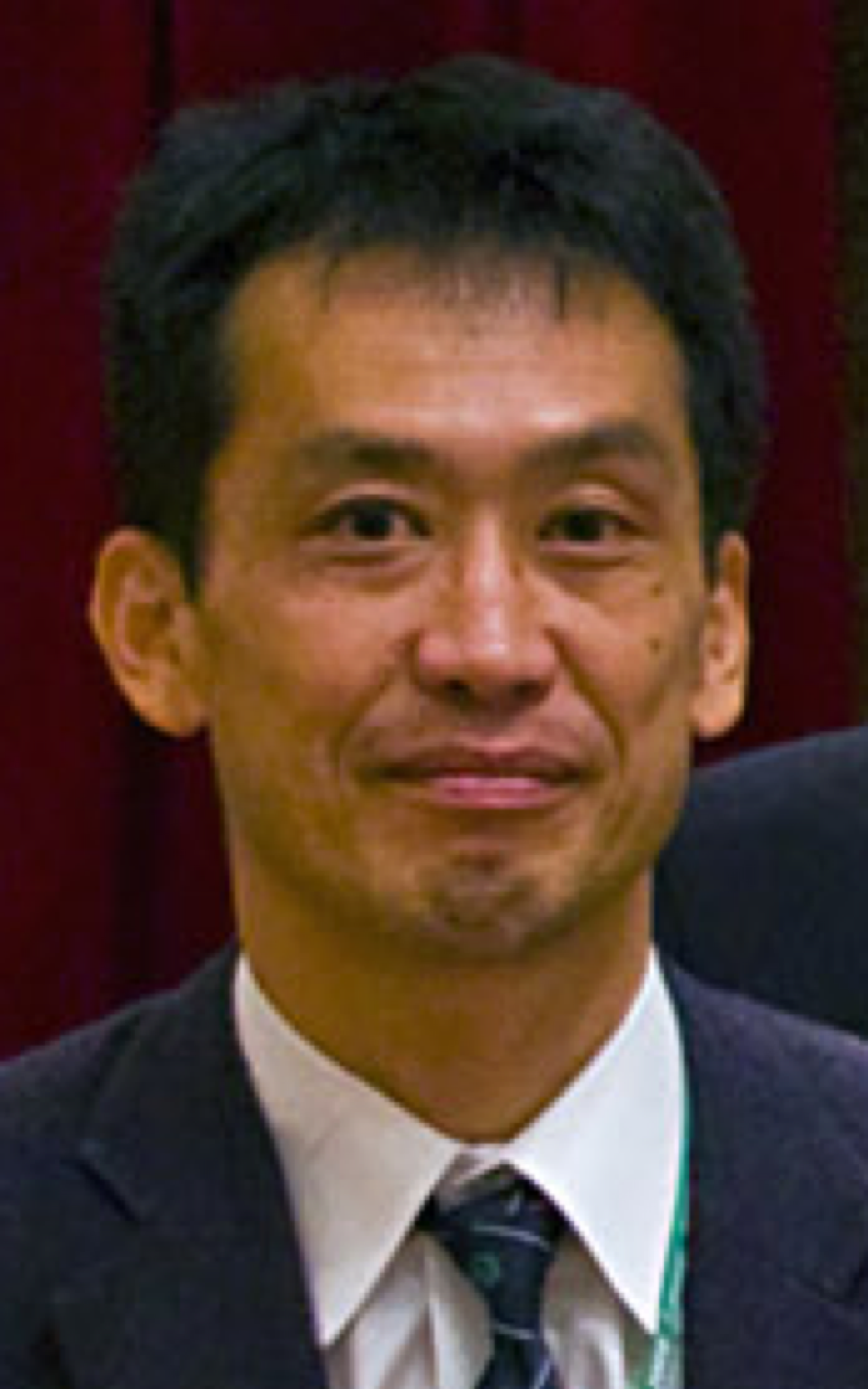Shiro Ikegawa1, Jin Ye Yeo2
1Laboratory for Bone and Joint Diseases, RIKEN Center for Integrative Medical Sciences, Tokyo, Japan; 2AOJ AME Publishing Company
Correspondence to: Jin Ye Yeo. AOJ Editorial Office, AME Publishing Company. Email: aoj@amegroups.com
This interview can be cited as: Ikegawa S, Yeo JY. Meeting the Editor-in-Chief of AOJ: Dr. Shiro Ikegawa. Ann Joint. 2024. Available from: https://aoj.amegroups.org/post/view/meeting-the-editor-in-chief-of-aoj-dr-shiro-ikegawa.
Expert introduction
Dr. Shiro Ikegawa (Figure 1) is the principal visiting researcher of RIKEN Center for Integrated Medical Sciences (IMS, RIKEN) and visiting professors and lectures of domestic and international universities. He has board-certificated licences of orthopaedic surgery and clinical genetics.
Dr. Ikegawa earned his MD and PhD from Faculty of Medicine, The University of Tokyo. He started his medical carrier in 1983 as a pediatric orthopedic surgeon and became a chief surgeon in 1992 at the Department of Orthopaedics, National Rehabilitation Center for Disabled Children (NRCDC). Then he switched his course from a clinician to a basic scientist and worked on the genomic studies of bone and joint under the Millennium project of Japan. He was the assistant professor of Institute of Medical Science, University of Tokyo (1995-2000). From 2000 to 2023, he worked as the head of the Laboratory for Bone and Joint Diseases, IMS, RIKEN, playing a central role in genomic studies of bone and joint diseases in Japan. He discovered more than 30 monogenic disease genes and succeeded in genome-wide association studies (GWASs) in 8 orthopedic diseases.
His other appointments include being the Director of the Japanese Society of Human Genetics; Executive Board member of EAUHGS (East Asian Union of Human Genetics; Honorary professor of Hong Kong University (Dept of Biochemistry); Visiting professor of Yokohama City University; Visiting professor of Taipei Medical School; Concurrent professor of Nanjing University (School of Medicine); Visiting lecturer at Hiroshima University Dental. School; Visiting lecturer at Kyoto University, Institute for Frontier Medical Sciences, etc. In 2009, he was appointed by the Raine Medical Foundation, University of Western Australia as the Raine Visiting Professorship. He was awarded the Basic Research Award in 2012, Japan Society of Human Genetics Award, and RIKEN Center for IMS Award in 2013 and the Health and Culture award in 2022.

Figure 1 Dr. Shiro Ikegawa
Interview
AOJ: What motivated you to pursue a career in orthopedic surgery and genetics?
Dr. Ikegawa:I wanted to save patients, in particular those who had no good treatment in the current state of medicine.
AOJ: Could you share a brief overview of the publications on the association of genes and orthopedic diseases, such as scoliosis and osteoarthritis? Are there any findings that stood out to you?
Dr. Ikegawa: I published more than 400 papers on bone and joint diseases. For the monogenic disease, I reported the identification of novel disease genes for the first time in the world in 32 diseases (35 genes), including cranio-tubular dysplasia, Ikegawa type (1) and osteopetrosis, Ikegawa type (2). For the polygenic disease, I succeeded in genome-wide association studies (GWASs) for the first time in the world in osteoarthritis (3), adolescent idiopathic scoliosis (4), lumbar disc disease (5), ossification of the posterior longitudinal ligament of the spine (6), idiopathic osteonecrosis (7), and developmental dysplasia of the hip (8).
AOJ: Can you discuss a recent breakthrough or significant finding from your research on bone and joint diseases that you believe will have a major impact?
Dr. Ikegawa: Discovery of the novel disease genes is leading to the identification of the pathomechanism of the diseases, then leading to the novel treatment. The success of GWASs in the polygenic diseased has presented new insights for the bone and joint disease diseases, also leading to the identification of the pathomechanism of the diseases.
AOJ: What are some areas in genetics and orthopedic surgery research do you believe have received insufficient attention?
Dr. Ikegawa: Sad to say, in so many orthopedic diseases (in particular, in polygenic diseases), the power of genetics has been and still is underestimated.
AOJ: How has your role in different professional organizations and your visiting professorships at various institutions shaped your perspective on global research trends?
Dr. Ikegawa: The world is one, so it should be. There is no border in medicine and science.
AOJ: Moving forward, what are your long-term goals for your research?
Dr. Ikegawa: I have retired from the front-line of the basic research. I want to spend more time in the education of the next generation of bone and joint studies.
AOJ: As the Editor-in-Chief, what are your expectations for AOJ?
Dr. Ikegawa: It would be nice if AOJ could accelerate the communication between doctors and scientists, and between clinical and basic medicine.
Reference
- Guo L, Iida A, Bhavani GS, et al. Deficiency of TMEM53 causes a previously unknown sclerosing bone disorder by dysregulation of BMP-SMAD signaling. Nat Commun 2021;12(1):2046.
- Xue JY, Grigelioniene G, Wang Z, et al. SLC4A2 Deficiency Causes a New Type of Osteopetrosis. J Bone Miner Res 2022;37(2):226-235.
- Miyamoto Y, Mabuchi A, Shi D, et al. A functional polymorphism in the 5' UTR of GDF5 is associated with susceptibility to osteoarthritis. Nat Genet 2007;39(4):529-533.
- Takahashi Y, Kou I, Takahashi A, et al. A genome-wide association study identifies common variants near LBX1 associated with adolescent idiopathic scoliosis. Nat Genet 2011;43(12):1237-1240.
- Song YQ, Karasugi T, Cheung KM, et al. Lumbar disc degeneration is linked to a carbohydrate sulfotransferase 3 variant. J Clin Invest 2013;123(11):4909-4917.
- Nakajima M, Takahashi A, Tsuji T, et al. A genome-wide association study identifies susceptibility loci for ossification of the posterior longitudinal ligament of the spine. Nat Genet 2014;46(9):1012-1016.
- Sakamoto Y, Yamamoto T, Sugano N, et al. Genome-wide Association Study of Idiopathic Osteonecrosis of the Femoral Head. Sci Rep 2017;7(1):15035.
- Yan W, Hao Z, Tang S, et al. A genome-wide association study identifies new genes associated with developmental dysplasia of the hip. Clin Genet 2019;95(3):345-355.
